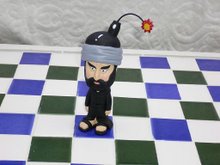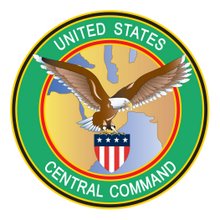 From the WSJ Opinion Journal
From the WSJ Opinion JournalIslamists always believed the U.S. was weak. Recent political trends won't change their view.
BY BERNARD LEWIS
Wednesday, May 16, 2007 12:01 a.m. EDT
During the Cold War, two things came to be known and generally recognized in the Middle East concerning the two rival superpowers. If you did anything to annoy the Russians, punishment would be swift and dire. If you said or did anything against the Americans, not only would there be no punishment; there might even be some possibility of reward, as the usual anxious procession of diplomats and politicians, journalists and scholars and miscellaneous others came with their usual pleading inquiries: "What have we done to offend you? What can we do to put it right?"
A few examples may suffice. During the troubles in Lebanon in the 1970s and '80s, there were many attacks on American installations and individuals--notably the attack on the Marine barracks in Beirut in 1983, followed by a prompt withdrawal, and a whole series of kidnappings of Americans, both official and private, as well as of Europeans. There was only one attack on Soviet citizens, when one diplomat was killed and several others kidnapped. The Soviet response through their local agents was swift, and directed against the family of the leader of the kidnappers. The kidnapped Russians were promptly released, and after that there were no attacks on Soviet citizens or installations throughout the period of the Lebanese troubles.
![]()
These different responses evoked different treatment. While American policies, institutions and individuals were subject to unremitting criticism and sometimes deadly attack, the Soviets were immune. Their retention of the vast, largely Muslim colonial empire accumulated by the czars in Asia passed unnoticed, as did their propaganda and sometimes action against Muslim beliefs and institutions.
Most remarkable of all was the response of the Arab and other Muslim countries to the Soviet invasion of Afghanistan in December 1979. Washington's handling of the Tehran hostage crisis assured the Soviets that they had nothing to fear from the U.S. They already knew that they need not worry about the Arab and other Muslim governments. The Soviets already ruled--or misruled--half a dozen Muslim countries in Asia, without arousing any opposition or criticism. Initially, their decision and action to invade and conquer Afghanistan and install a puppet regime in Kabul went almost unresisted. After weeks of debate, the U.N. General Assembly finally was persuaded to pass a resolution "strongly deploring the recent armed intervention in Afghanistan." The words "condemn" and "aggression" were not used, and the source of the "intervention" was not named. Even this anodyne resolution was too much for some of the Arab states. South Yemen voted no; Algeria and Syria abstained; Libya was absent; the nonvoting PLO observer to the Assembly even made a speech defending the Soviets.
One might have expected that the recently established Organization of the Islamic Conference would take a tougher line. It did not. After a month of negotiation and manipulation, the organization finally held a meeting in Pakistan to discuss the Afghan question. Two of the Arab states, South Yemen and Syria, boycotted the meeting. The representative of the PLO, a full member of this organization, was present, but abstained from voting on a resolution critical of the Soviet action; the Libyan delegate went further, and used this occasion to denounce the U.S.
The Muslim willingness to submit to Soviet authority, though widespread, was not unanimous. The Afghan people, who had successfully defied the British Empire in its prime, found a way to resist the Soviet invaders. An organization known as the Taliban (literally, "the students") began to organize resistance and even guerilla warfare against the Soviet occupiers and their puppets. For this, they were able to attract some support from the Muslim world--some grants of money, and growing numbers of volunteers to fight in the Holy War against the infidel conqueror. Notable among these was a group led by a Saudi of Yemeni origin called Osama bin Laden.
 To accomplish their purpose, they did not disdain to turn to the U.S. for help, which they got. In the Muslim perception there has been, since the time of the Prophet, an ongoing struggle between the two world religions, Christendom and Islam, for the privilege and opportunity to bring salvation to the rest of humankind, removing whatever obstacles there might be in their path. For a long time, the main enemy was seen, with some plausibility, as being the West, and some Muslims were, naturally enough, willing to accept what help they could get against that enemy. This explains the widespread support in the Arab countries and in some other places first for the Third Reich and, after its collapse, for the Soviet Union. These were the main enemies of the West, and therefore natural allies.
To accomplish their purpose, they did not disdain to turn to the U.S. for help, which they got. In the Muslim perception there has been, since the time of the Prophet, an ongoing struggle between the two world religions, Christendom and Islam, for the privilege and opportunity to bring salvation to the rest of humankind, removing whatever obstacles there might be in their path. For a long time, the main enemy was seen, with some plausibility, as being the West, and some Muslims were, naturally enough, willing to accept what help they could get against that enemy. This explains the widespread support in the Arab countries and in some other places first for the Third Reich and, after its collapse, for the Soviet Union. These were the main enemies of the West, and therefore natural allies.
Now the situation had changed. The more immediate, more dangerous enemy was the Soviet Union, already ruling a number of Muslim countries, and daily increasing its influence and presence in others. It was therefore natural to seek and accept American help. As Osama bin Laden explained, in this final phase of the millennial struggle, the world of the unbelievers was divided between two superpowers. The first task was to deal with the more deadly and more dangerous of the two, the Soviet Union. After that, dealing with the pampered and degenerate Americans would be easy.
We in the Western world see the defeat and collapse of the Soviet Union as a Western, more specifically an American, victory in the Cold War. For Osama bin Laden and his followers, it was a Muslim victory in a jihad, and, given the circumstances, this perception does not lack plausibility.
![]()
From the writings and the speeches of Osama bin Laden and his colleagues, it is clear that they expected this second task, dealing with America, would be comparatively simple and easy. This perception was certainly encouraged and so it seemed, confirmed by the American response to a whole series of attacks--on the World Trade Center in New York and on U.S. troops in Mogadishu in 1993, on the U.S. military office in Riyadh in 1995, on the American embassies in Kenya and Tanzania in 1998, on the USS Cole in Yemen in 2000--all of which evoked only angry words, sometimes accompanied by the dispatch of expensive missiles to remote and uninhabited places.
Stage One of the jihad was to drive the infidels from the lands of Islam; Stage Two--to bring the war into the enemy camp, and the attacks of 9/11 were clearly intended to be the opening salvo of this stage. The response to 9/11, so completely out of accord with previous American practice, came as a shock, and it is noteworthy that there has been no successful attack on American soil since then. The U.S. actions in Afghanistan and in Iraq indicated that there had been a major change in the U.S., and that some revision of their assessment, and of the policies based on that assessment, was necessary.
More recent developments, and notably the public discourse inside the U.S., are persuading increasing numbers of Islamist radicals that their first assessment was correct after all, and that they need only to press a little harder to achieve final victory. It is not yet clear whether they are right or wrong in this view. If they are right, the consequences--both for Islam and for America--will be deep, wide and lasting.
Mr. Lewis, professor emeritus at Princeton, is the author, most recently, of "From Babel to Dragomans: Interpreting the Middle East" (Oxford University Press, 2004).







